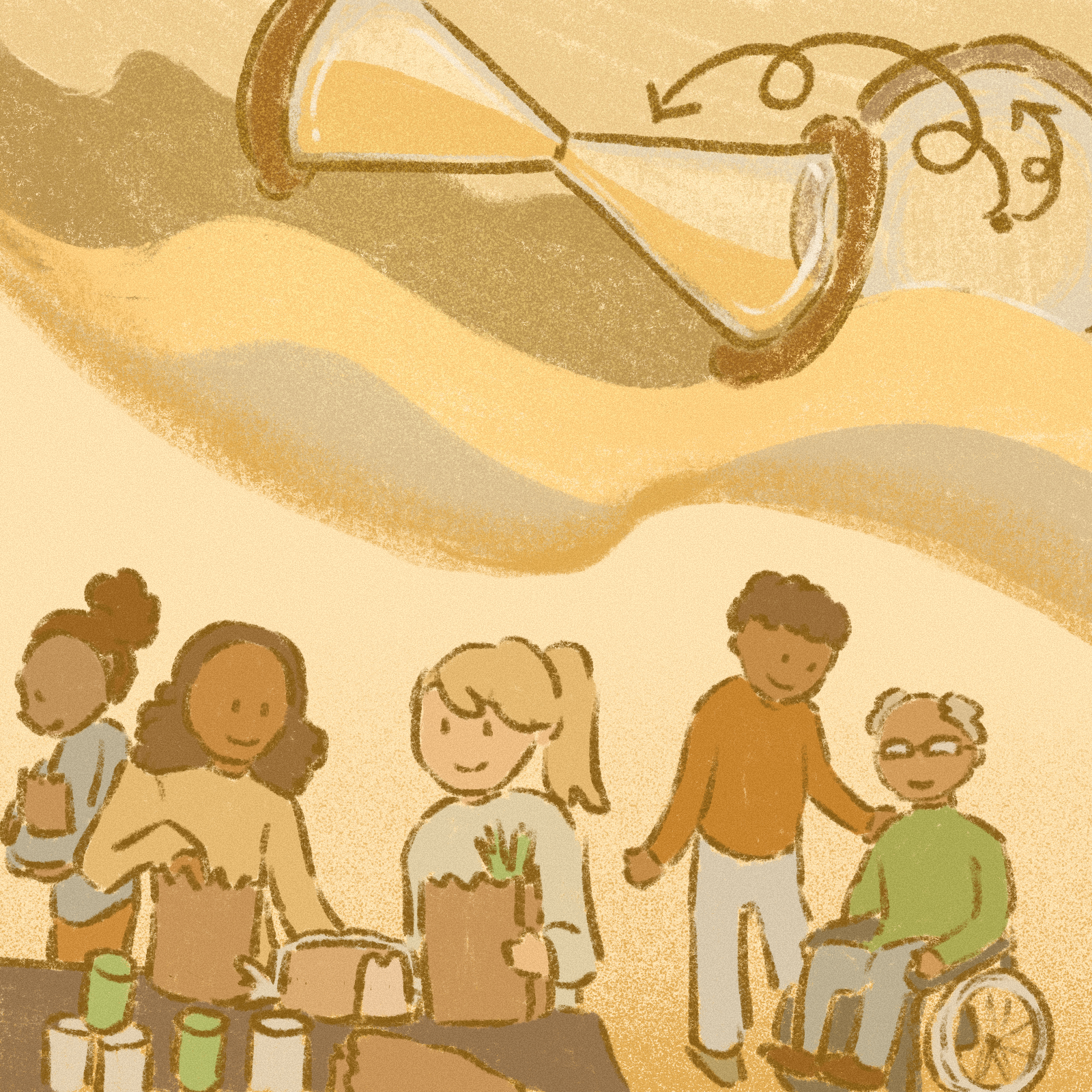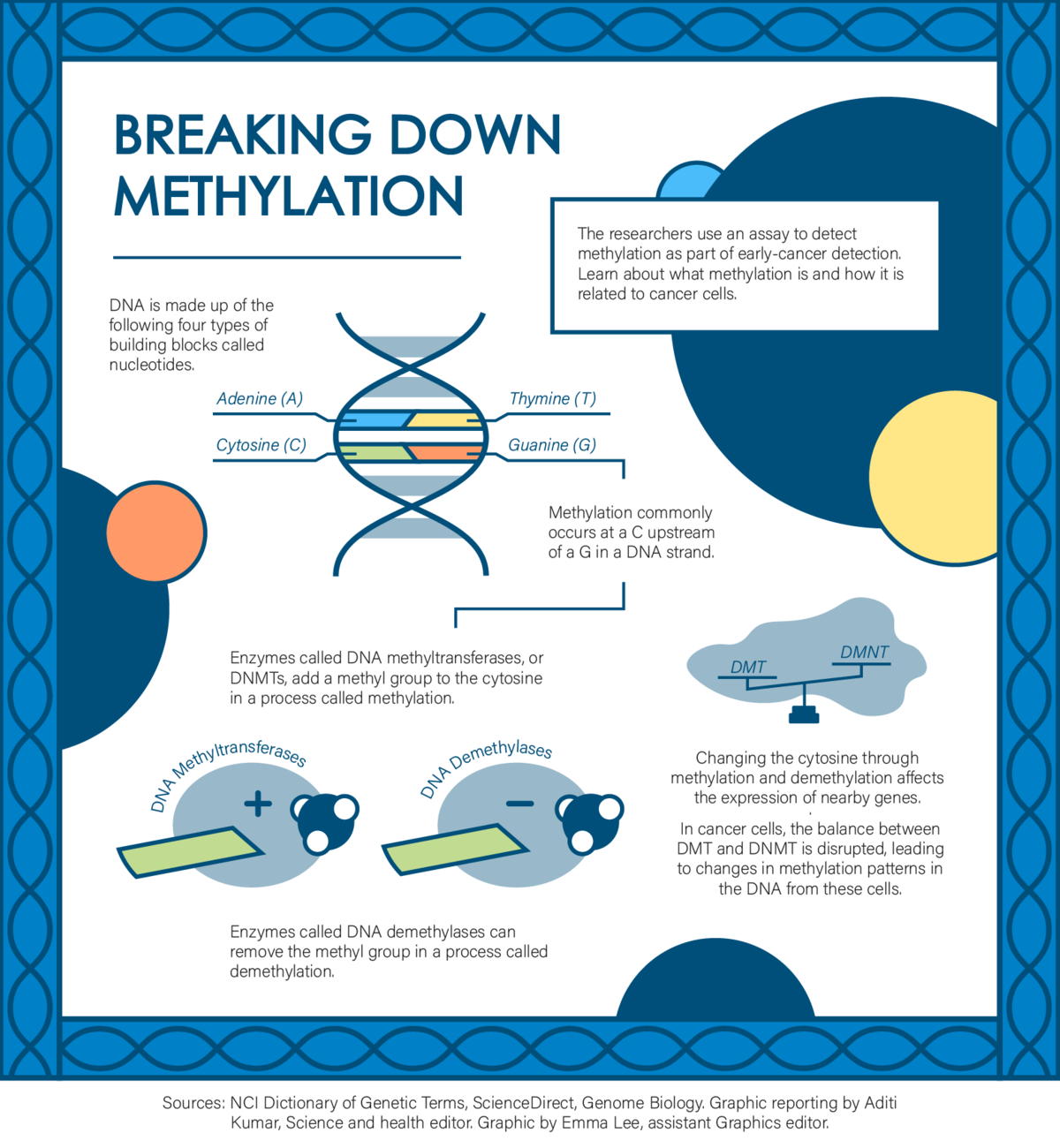UCLA researchers uncover link between volunteering and decreased biological age

(By Isabella Lee/Illustrations Director)

By Megan McCallister
March 9, 2023 11:47 p.m.
Researchers at UCLA and the University of British Columbia have found that volunteering over 100 hours per year is associated with reduced biological age.
Two people with the same chronological age can have different biological ages, which is a measure of how old your cells and tissues appear, according to Verywell Health. Compared to chronological age, biological age better predicts a person’s physical capabilities and health outcomes, said Julia Nakamura, a doctoral student of psychology at UBC and first author on the paper. This study measured biological age by analyzing the epigenome.
In 2013, Steven Horvath, a professor of human genetics and psychiatry and biobehavioral sciences at UCLA, discovered that one way to determine biological age is through analyzing one’s epigenetic clock. The epigenome encompasses the chemical changes that occur to one’s DNA throughout their lifetime and ultimately regulates how genetic information manifests into physical characteristics, according to the National Human Genome Research Institute.
One chemical change scientists look for in the epigenome is the extent of DNA methylation, or how many methyl groups are added to a DNA molecule, said Steven Cole, professor of medicine at UCLA and co-author of the paper. For certain individuals, DNA methylation might occur faster or slower than the average human being of their age, allowing scientists to use the amount of methylation to assess if a person’s tissues are aging at an accelerated or decelerated rate, he added. This study used one’s level of DNA methylation to measure their epigenetic, and therefore biological, age, according to the study.
The researchers found that volunteering 100 hours or more per year was associated with improved biological aging outcomes in their nationwide sample of adults aged 50 to 90. When compared to those who did not regularly volunteer, the volunteering adults had biological age profiles that were, on average, reduced by a third of a year to two years, Nakamura said.
Epigenetic age estimates can be used to predict one’s risk for age-related disease, time until death and limitations to one’s physical function, said Judith Carroll, an associate professor of psychiatry and biobehavioral sciences at UCLA, in an emailed statement. People who have reduced epigenetic age compared to their chronological age are thought to have better health prospects and are likely to live longer than individuals whose epigenetic age matches or is greater than their chronological age, she added in the statement.
Psychological and social factors – including stress, anger, depression and social support – as well as behavioral factors, such as exercise, have been associated with changes to the epigenome that can accelerate or decelerate biological age, Nakamura said. Stimulation of an individual’s stress response can have detrimental effects to long-term health and is thought to lead to a shift of the epigenome, which modifies how the cells are behaving and may affect epigenetic age, Caroll said.
It is a well-known fact in epidemiology that factors such as socioeconomic status or racial and ethnic group membership have different health prospects, Cole said, adding that researchers now want to understand why average lifespan might differ between socioeconomic or racial groups.
[Related: UCLA study finds discriminatory experiences affect health of brain, body]
“Epidemiologists have been increasingly interested in, even if we find the basis for these differences (in health outcomes), what can we do to actually change health prospects?” Cole said. “Is there something someone could do that would reduce … the elevated health risk associated with living in economically strained or impoverished circumstances?”
To understand how social behaviors may be able to improve health outcomes, recent research has centered around the search for resilience factors, which are behavioral factors that reduce the health risk associated with various kinds of adverse life circumstances, Cole said. One of the recurrent findings is that people who are engaged in prosocial behavior or helping others tend to have more favorable health outcomes, Cole said, adding that the researchers wanted to determine if volunteering is associated with changes to the epigenome that may in turn affect health outcomes.
As the team did not perform an experimental study, they could only determine an association between volunteering and epigenetic differences, as opposed to a causal relationship, Nakamura said. Other factors, including smoking, alcohol use, exercise and body mass index could be affecting the relationship, she added. The results from the study are not enough to conclude that volunteering itself is a viable solution to improving health prospects, she said.
The study serves as an indication for future research, Nakamura said, adding that it suggests new opportunities to reduce biological age and diseases in older adults by promoting volunteering. If researchers can determine that volunteering causes a deceleration in biological aging, clinicians can begin to use volunteering as a tool to offset the risks that might come from acceleration factors such as intergenerational trauma or trauma exposures within an individual’s own life, Cole said.
“Over the next 15 years, the number of adults aged greater than 65 is expected to increase by over 60% in the U.S.,” Nakamura said. “So while we know that life expectancy has increased, the burden of chronic disease has also increased … So researchers and policymakers are increasingly interested in how we can promote later-life well-being.”



